The Ministry of Industry and Trade has submitted draft decree which aims to impose compulsory certification of cement in Russia. This requirement would allow to diminish the risks to human health and life as well as to private and corporate property and the environment.
In addition, compulsory certification would allow to prevent any actions which may mislead the consumers. A part of the compulsory certification procedure is checking compliance with the requirements of the applicable standards.
Russian national standards take into consideration the climate conditions compliance with which ensures safety and quality of cement supplied on the Russian market. For instance, the requirements contained in the national standards set limits to the content of alkaline in cement, since any deviation from these limits lead to lower quality of concrete, development of cracks and corrosion and shortens the service life of the structures. Also, the standards set the limits to the content of tricalcium aluminate as the exceedance of such limits leads to the decrease of the frost-resistance properties of cement.
The quality problem very often arises with imported cement as it is currently supplied to Russia without having to comply with the applicable standards, which, in turn, impose requirements reflecting Russia's climate conditions.





